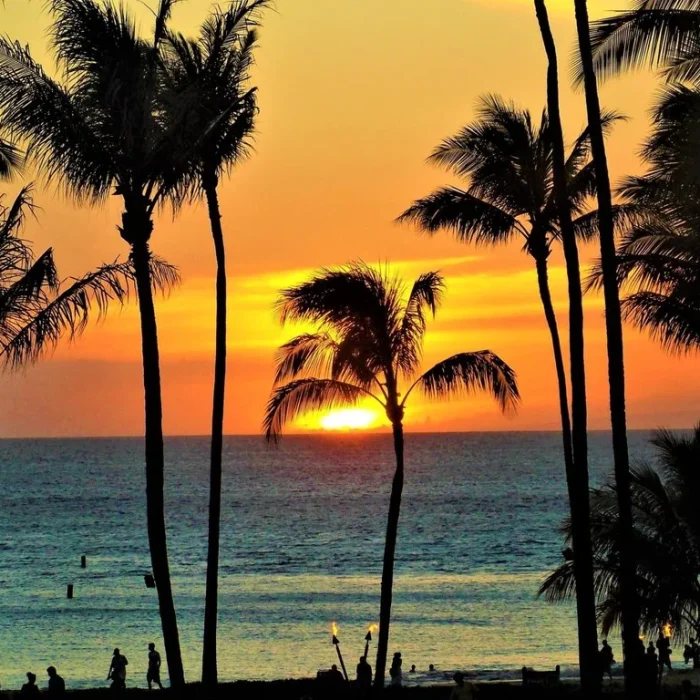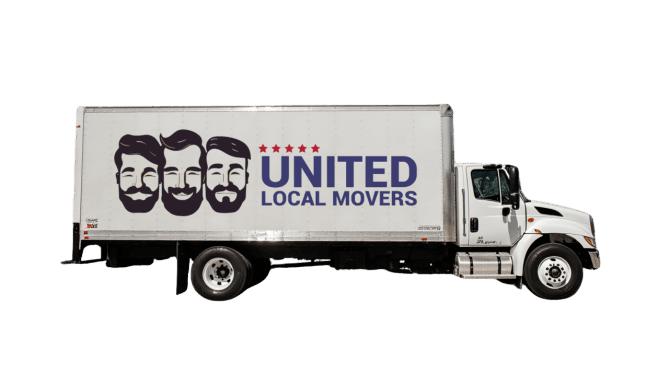Home > Interstate Moving > Moving to Hawaii > Moving to Maui
Moving to Maui
Maui, often called the “Valley Isle,” is one of Hawaii’s most beloved islands and a top destination not just for tourists but also for people seeking a new life in paradise. With a population of around 165,000, Maui is smaller and less urban than Oahu but offers a mix of modern conveniences and natural beauty that many find irresistible. Known for its golden beaches, lush valleys, and Haleakalā volcano, Maui combines tranquility, adventure, and community spirit.
Moving to Maui means joining a place where life slows down, nature is front and center, and communities are tight-knit. Residents enjoy everything from whale watching and snorkeling in Molokini Crater to hiking in ʻĪao Valley. At the same time, Maui faces challenges: high living costs, limited job diversity, and a housing shortage.
This guide explores the realities of living on Maui — from pros and cons to housing, schools, jobs, transportation, and moving costs — so you can make an informed decision about your relocation.

Why More People Are Moving from the Mainland to Maui
Maui attracts newcomers for lifestyle above all else. People from California, Oregon, and New York often relocate to Maui to escape crowded cities and embrace a slower, nature-driven lifestyle.
Another factor is climate. Maui offers year-round warmth, with sunny beaches in the south (Kihei, Wailea) and cooler, lush areas upcountry (Makawao, Kula). This variety makes it easy to find a microclimate that suits personal preferences.
Community spirit is strong on Maui. Residents value family, tradition, and sustainability. Many newcomers are drawn to the island’s emphasis on community involvement and respect for the land (aloha ʻāina).
Finally, Maui’s accessibility is a factor. Kahului Airport offers direct flights to the mainland and inter-island connections, making Maui more accessible than Kauai or the Big Island.
Pros of Living in Maui
The biggest pro is natural beauty. Maui offers world-class beaches, lush rainforests, and volcanic landscapes, making everyday life feel like a vacation.
Another strength is lifestyle. Residents enjoy water sports, hiking, and cultural festivals without the pace of big-city life. It’s slower and more peaceful than Oahu, but with more amenities than Kauai or Hilo.
The sense of community is strong. With a smaller population, neighbors know one another, and local events bring people together.
Cultural richness is another plus. Hawaiian traditions, hula festivals, and music are integral to daily life, and residents take pride in preserving them.
Finally, Maui provides a balance of tourism-driven vibrancy and small-town authenticity. Residents can enjoy resort amenities while living in close-knit communities.

Ready to get moved? Get a FREE quote now
Book your move easily and stress-free!
Cons of Living in Maui
The most significant drawback is cost. Housing prices are high, with median home prices surpassing $1 million. Rent for a one-bedroom apartment averages $2,100, making affordability a major issue.
Job opportunities are limited. Tourism dominates, and while there are jobs in hospitality, agriculture, and healthcare, high-paying professional opportunities are rare.
Geographic isolation is another challenge. Maui lacks the large-scale infrastructure of Oahu, so specialized healthcare, shopping, or entertainment often requires travel.
Weather is both a pro and a con. While sunny most of the year, the island faces hurricanes, tropical storms, and occasional droughts.
Finally, housing shortages make finding a home challenging, especially in popular areas like Kihei or Lahaina.

What Life is Like in Maui
Life in Maui is defined by nature, community, and balance. Residents often wake up early to surf, swim, or fish before work. Farmers markets and community gatherings are central to life.
Neighborhoods vary. South Maui (Kihei, Wailea) is sunny, dry, and popular with retirees. West Maui (Lahaina, Kaanapali) has resorts and beaches but also high housing demand. Central Maui (Kahului, Wailuku) is practical and affordable, while Upcountry Maui (Makawao, Kula) offers cooler weather and rural charm.
Food culture reflects Maui’s diversity. Residents enjoy fresh seafood, farm-to-table dining, and Hawaiian staples like poke and laulau. Farmers markets supply local produce year-round.
Community events like the Maui Film Festival, Aloha Festivals, and whale-watching celebrations highlight the island’s cultural vibrancy.
For many, life in Maui feels more relaxed and authentic than Oahu but with more opportunities than Kauai.
Living Costs in Maui
Maui’s living costs are among the highest in the U.S., especially for housing.
| Category | Maui | National Average |
|---|---|---|
| Housing (Rent per Month) | $2,100 | $1,570 |
| Utilities | $220 | $180 |
| Groceries | $410 | $330 |
| Transportation | $180 | $140 |
| Healthcare | $470 | $440 |
Housing and groceries are the biggest expenses. Utilities are higher due to reliance on imports, but many residents offset costs with solar energy and local produce.

Ready to get moved? Get a FREE quote now
Ready to get moved? Get a FREE quote now
Schools and Education in Maui
Maui is served by the Hawaii Department of Education. Schools include Maui High School, Baldwin High School, and Lahainaluna High School — the oldest school west of the Rockies. Performance varies, but smaller class sizes and strong community support benefit students.
Private schools like Seabury Hall and Maui Preparatory Academy provide college-prep education.
Higher education options include University of Hawaii Maui College, offering associate and bachelor’s programs. Specialized fields like sustainable energy and Hawaiian studies attract students from across the islands.
Overall, Maui’s education system offers a mix of public and private opportunities with a focus on community involvement.
Transportation and Getting Around
Maui is largely car-dependent. Highways connect major towns, but traffic can be heavy in Lahaina and Kihei.
Public transportation is limited to the Maui Bus system, which provides coverage but isn’t ideal for daily commuting.
For air travel, Kahului Airport is the island’s hub, with direct flights to the mainland and inter-island connections. Smaller airports in Kapalua and Hana serve regional needs.
Cycling and walking are possible in certain towns, but most residents rely on cars.

United Local Movers: Our Services
Relocating to Maui is a unique challenge due to island logistics. United Local Movers provides professional packing, shipping, and storage tailored for Hawaii relocations.
Whether moving into a condo in Kihei, a family home in Wailuku, or a retreat in Upcountry, our crews ensure safe and professional service.
With transparent pricing and tailored plans, United Local Movers makes Maui relocations smooth and stress-free.
Average Cost to Move to Maui
Relocations to Maui cost more due to ocean freight and logistics.
| Move Type | Estimated Cost |
|---|---|
| Local Move (1-2 Bedrooms) | $1,300–$2,600 |
| From Mainland U.S. | $5,200–$10,800 |
| Full Packing Services | + $500–$1,000 |
| Storage Options | $160–$320 per month |
United Local Movers coordinates every step, from shipping logistics to local delivery, ensuring peace of mind.


How to Choose the Right Moving Company
When moving to Maui, it’s important to select movers with island relocation experience. Always verify licensing, insurance, and written estimates.
Look for movers with proven Hawaii shipping partnerships. Customer reviews are valuable for judging professionalism.
United Local Movers combines national expertise with local Hawaiian knowledge, making it the trusted choice for Maui moves.
Final Thoughts
Maui is one of the most beautiful islands in the world. Its beaches, volcanoes, and cultural traditions create a lifestyle that feels both peaceful and adventurous. While high costs, limited jobs, and isolation are challenges, the rewards — stunning scenery, strong communities, and balance between resort life and local authenticity — make Maui a dream destination.
For families, retirees, and professionals, Maui provides a unique opportunity to live in harmony with nature and culture. And with United Local Movers, your move to Maui can be smooth, professional, and stress-free.



![local movers in [City] local movers in [City]](https://unitedlocalmovers.com/wp-content/uploads/elementor/thumbs/local-movers-in-City-rj6z70ii1a4awlun6ubh8rd3n7tif0jfillzrg9hao.jpg)
